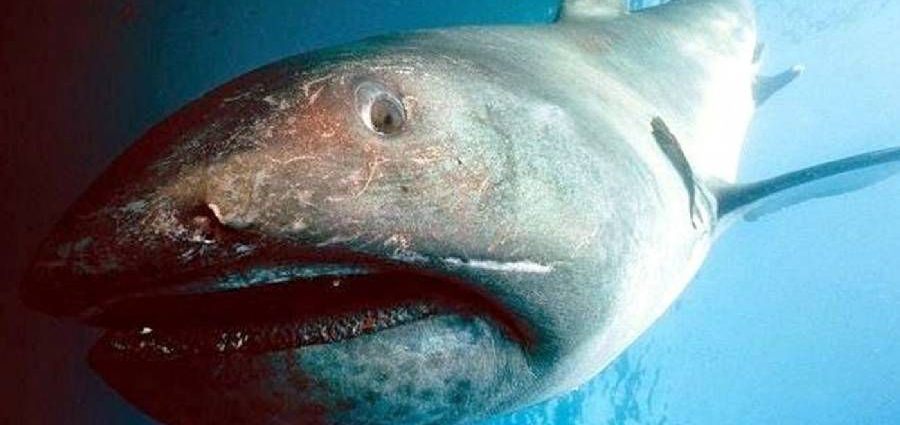HARPER (LIBERIA)- The Environmental Justice Foundation’s community science programme in Liberia has identified a megamouth shark, one of the most elusive shark species in the world. It is only the 103rd time a Megamouth Shark has been recorded globally, and the second time in West Africa. Most recordings are of the dead sharks.
Entangled in driftnet
As was this one. The Megamouth shark was landed by a canoe fisherman in the remote town of Harper in southeast Liberia on 26 March. The animal died after reportedly becoming entangled in an abandoned driftnet. Measuring 380cm (12.4 ft) in length, the male shark was initially identified by the EJF team by its a vast head, rubbery lips, dentition and elongated gill slits and confirmed by leading shark experts.
There has been only one other recorded sighting of a megamouth shark in West Africa, which occurred in Senegal in 1995 (that perished after becoming caught in a tuna fishing net). The information provides crucial insight into the distribution of this shark species and highlights the need for a ‘precautionary approach’ to fisheries management and conservation: to ensure we do not lose species before their populations are known.
Elusive shark
Megamouth sharks (Megachasma pelagios) were only discovered in 1976 when an individual was captured in Hawaii. Unlike their fellow filter-feeding sharks – the whale shark and basking shark – there have been extremely few records of the species. The majority of these have been in the Indo-Pacific – the waters around Japan, Taiwan and the Philippines. This new record, along with two others from the North Atlantic, shows that the species distribution stretches much further in what could be a highly-migratory global population.
Least Concern
The IUCN lists the megamouth as ‘least concern’ for conservation, but this is only on the basis of a lack of population data. “It is vital that such elusive species are protected regardless of the fact that their populations are difficult to monitor”, says EJF on their website.
Read more on Environmental Justice Foundation.
Want to know more about Megamouth Sharks? Here are some quick facts:

